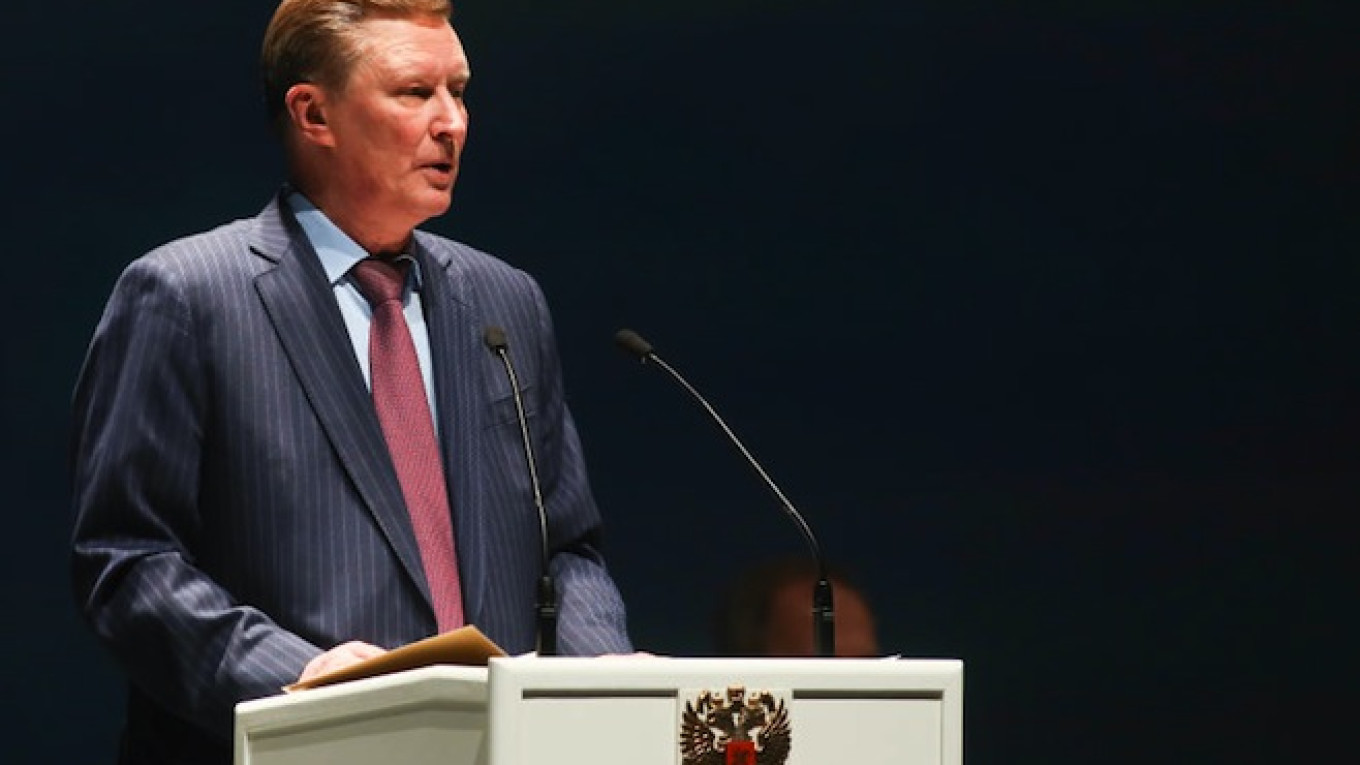The price tag for state-run energy giant Gazprom's forthcoming gas pipeline to China is estimated at between $60 billion and $70 billion, Kremlin chief of staff Sergei Ivanov said Wednesday.
"Construction of the gas pipeline Power of Siberia will begin in the very near future, a rough estimate of the project is $60 billion to $70 billion," RIA Novosti quoted Ivanov as saying at a meeting in Beijing with a group of Chinese Russian language students.
Once built, the pipeline will transport 39 billion cubic meters of gas annually to China for a period of 30 years, raking in a total of $400 billion in revenues for Russia and diversifying Russia's gas delivery infrastructure away from Europe, currently Gazprom's key market, under a deal signed by Gazprom head Alexei Miller and his counterpart at the China National Petroleum Corporation in May.
Ivanov's estimate exceeds a price quoted previously by Energy Minister Alexander Novak, who said that the pipeline and associated infrastructure would swallow up $55 billion in investment, ITAR-Tass reported. China has agreed to pay a $25 billion advance to help finance the pipeline, with the remainder to come from state-owned Gazprom.
Economic Development Minister Alexei Ulyukayev has said that the China deal could add up to 0.4 percent to Russia's GDP from 2015 onwards.
Coming as it did after a decade of negotiations and just when relations with the West were souring over the crisis in Ukraine, the gas deal with China has underscored Russia's new focus on bolstering ties with Asian trading partners. Ivanov told his Chinese audience on Wednesday that since tortuous gas price talks with Ukraine had fallen through and the Ukrainians would undoubtedly begin to "steal" gas when winter closes in, "We [Russia] need to diversify our fuel deliveries."
Gazprom has already begun pre-qualifying contractors for construction of the Power of Siberia to create a short list of those who will participate in the upcoming tender, business daily Vedomosti reported Wednesday.
The first tender for construction of the pipeline could begin as soon as August, a source close to one of the participants told the newspaper. The gas exports to China are set to begin in 2019, according to the contract, but may be delayed by two years at the discretion of either party.
Three major construction companies have already applied for pre-qualification — Arkady Rotenberg's Stroigazmontazh, Gennady Timchenko's Stroitransgaz and Chechen businessman Ruslan Baisarov's Stroigazconsulting, representatives from the three companies told Vedomosti. Others have also applied but have not yet been identified.
Both Rotenberg and Timchenko are widely known as close friends and allies of President Vladimir Putin, for which both were sanctioned by the United States in March following Russia's annexation of Crimea. A series of companies and banks connected to Timchenko and two banks owned by Arkady Rotenberg and his brother Boris were also blacklisted by the U.S. in a second sweep of sanctions in April.
Of the three declared contenders for pipeline construction contracts, only Baisarov is worth less than a billion dollars — Forbes puts his wealth at $900 million.
See also:
Europe Cannot and Should Not Reject Russian Gas, Total Chief Says
A Message from The Moscow Times:
Dear readers,
We are facing unprecedented challenges. Russia's Prosecutor General's Office has designated The Moscow Times as an "undesirable" organization, criminalizing our work and putting our staff at risk of prosecution. This follows our earlier unjust labeling as a "foreign agent."
These actions are direct attempts to silence independent journalism in Russia. The authorities claim our work "discredits the decisions of the Russian leadership." We see things differently: we strive to provide accurate, unbiased reporting on Russia.
We, the journalists of The Moscow Times, refuse to be silenced. But to continue our work, we need your help.
Your support, no matter how small, makes a world of difference. If you can, please support us monthly starting from just $2. It's quick to set up, and every contribution makes a significant impact.
By supporting The Moscow Times, you're defending open, independent journalism in the face of repression. Thank you for standing with us.
Remind me later.


